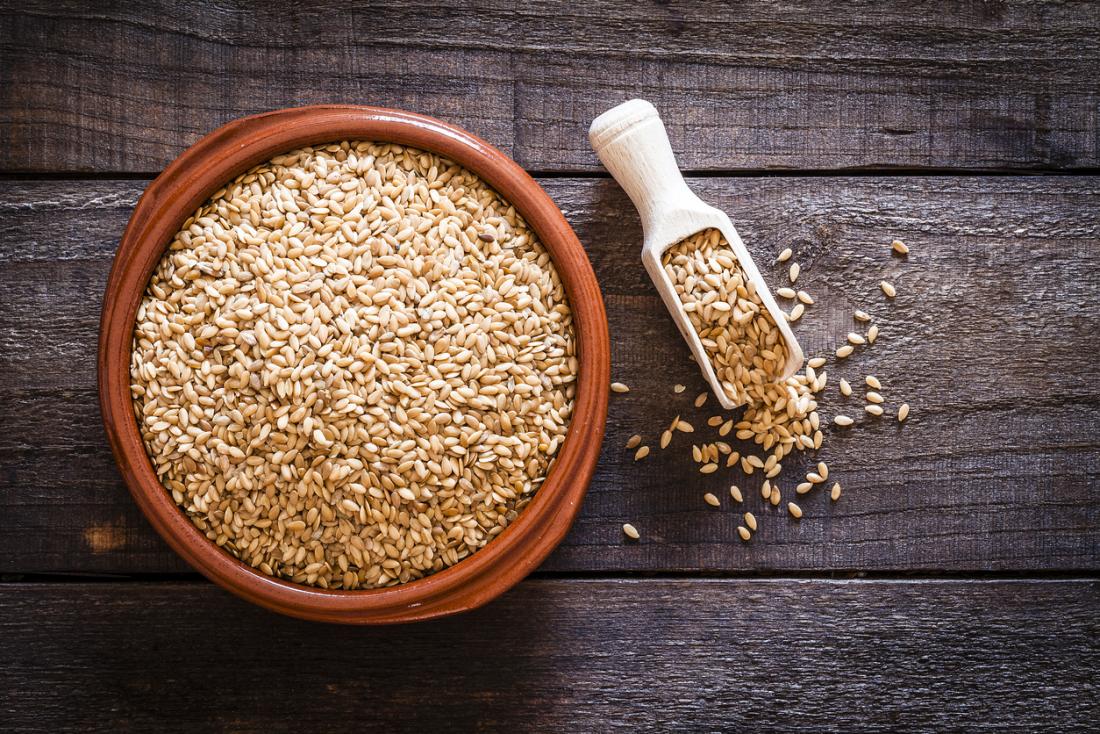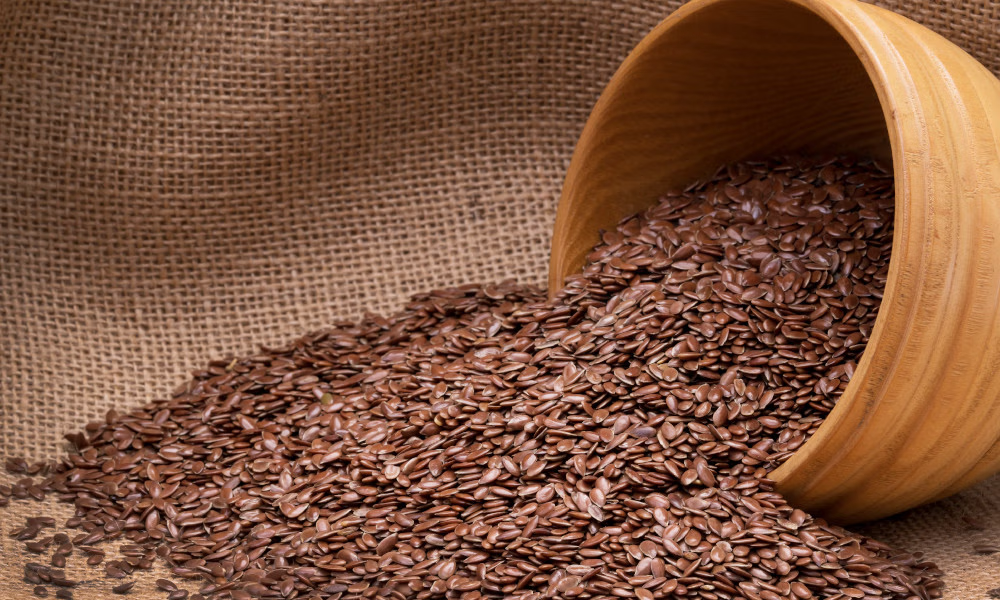“Explore 9 health benefits of flaxseed and get tips on how to add it to your diet. Discover its nutritional advantages and easy ways to enjoy flaxseed.”
Introduction
Flaxseed, a small but mighty seed, offers numerous health benefits that can enhance your overall well-being. Known for its high nutritional value, flaxseed can support various aspects of health, including heart health, digestive function, and skin condition. This guide explores nine key benefits of flaxseed and provides practical tips for incorporating it into your daily diet.

Rich in Omega-3 Fatty Acids
Flaxseed is a top plant-based source of alpha-linolenic acid (ALA), a type of omega-3 fatty acid. Omega-3s are essential fats that play a critical role in reducing inflammation and supporting heart health. ALA can help lower cholesterol levels and reduce the risk of heart disease. Including flaxseed in your diet, such as by adding it to smoothies or sprinkling it on salads, can significantly boost your intake of these beneficial fats.
Supports Digestive Health
Flaxseed is high in dietary fiber, which is crucial for maintaining a healthy digestive system. The fiber in flaxseed helps regulate bowel movements and prevents constipation. Ground flaxseed, in particular, is easier to digest and can be easily incorporated into yogurt, oatmeal, or other foods. This fiber content helps keep your digestive tract functioning smoothly and reduces bloating.
Enhances Skin Health
The omega-3 fatty acids and antioxidants in flaxseed contribute to healthy skin. Omega-3s help keep skin hydrated and reduce inflammation, which can improve skin texture and reduce dryness. Antioxidants in flaxseed combat oxidative stress and protect the skin from damage. Adding flaxseed oil to salads or smoothies can enhance skin hydration and elasticity, promoting a healthy complexion.
Aids in Weight Management
Flaxseed can support weight management due to its high fiber content, which promotes satiety. The fiber helps you feel full for longer, reducing overall calorie intake and helping to manage hunger. Incorporating flaxseed into your breakfast, snacks, or meals can assist in controlling appetite and supporting weight loss goals.

Boosts Heart Health
Regular consumption of flaxseed is linked to improved cardiovascular health. The combination of omega-3 fatty acids, fiber, and antioxidants helps lower blood pressure and reduce the risk of heart disease. To reap these benefits, consider adding flaxseed to whole-grain breads, energy bars, or other heart-healthy recipes.
May Improve Blood Sugar Levels
Flaxseed can help stabilize blood sugar levels, making it beneficial for individuals with diabetes or those at risk. Its fiber and healthy fats contribute to more stable glucose levels. Mixing ground flaxseed into smoothies or using it in baking recipes can support better blood sugar management and contribute to overall metabolic health.
Supports Hormonal Balance
Flaxseed contains lignans, which are plant compounds with phytoestrogenic properties. These lignans can help balance hormones and may alleviate symptoms associated with menopause. By including flaxseed in your diet, such as through flaxseed muffins or flaxseed meal, you can support hormonal health and stability.
Promotes Healthy Hair
The essential fatty acids found in flaxseed support healthy hair by improving hydration and reducing hair breakage. Consuming flaxseed regularly or applying flaxseed oil as part of your hair care routine can help maintain stronger, shinier hair and improve overall hair health.
Provides Antioxidant Protection
Flaxseed is rich in antioxidants, which protect cells from oxidative stress and inflammation. These antioxidants help combat free radicals and reduce the risk of chronic diseases. Incorporating flaxseed into your diet through smoothies, salads, or baked goods can enhance your antioxidant intake and contribute to better health.
How to Incorporate Flaxseed into Your Diet
- Smoothies: Add ground flaxseed to your smoothie for a nutritious boost. It blends easily and enhances the health benefits of your drink.
- Salads: Sprinkle whole or ground flaxseed on top of salads for extra crunch and a nutritional kick.
- Baking: Use flaxseed meal in baking recipes, such as muffins, bread, or pancakes, to increase fiber and omega-3 content.
- Yogurt: Mix flaxseed into yogurt for a simple, nutritious addition to your breakfast or snack.
- Oatmeal: Stir ground flaxseed into oatmeal to enhance fiber content and add omega-3s to your morning meal.
:strip_icc()/Flax-seeds-9f5a7cd3f4f9412daae43fdf52b65694.jpg)
Conclusion
Flaxseed is a versatile superfood with a range of health benefits, from supporting heart health to improving digestion and skin condition. By incorporating flaxseed into your daily diet, you can take advantage of its nutritional properties and enjoy a healthier lifestyle. Use the tips provided to make flaxseed a regular part of your meals and experience the many benefits it offers.
